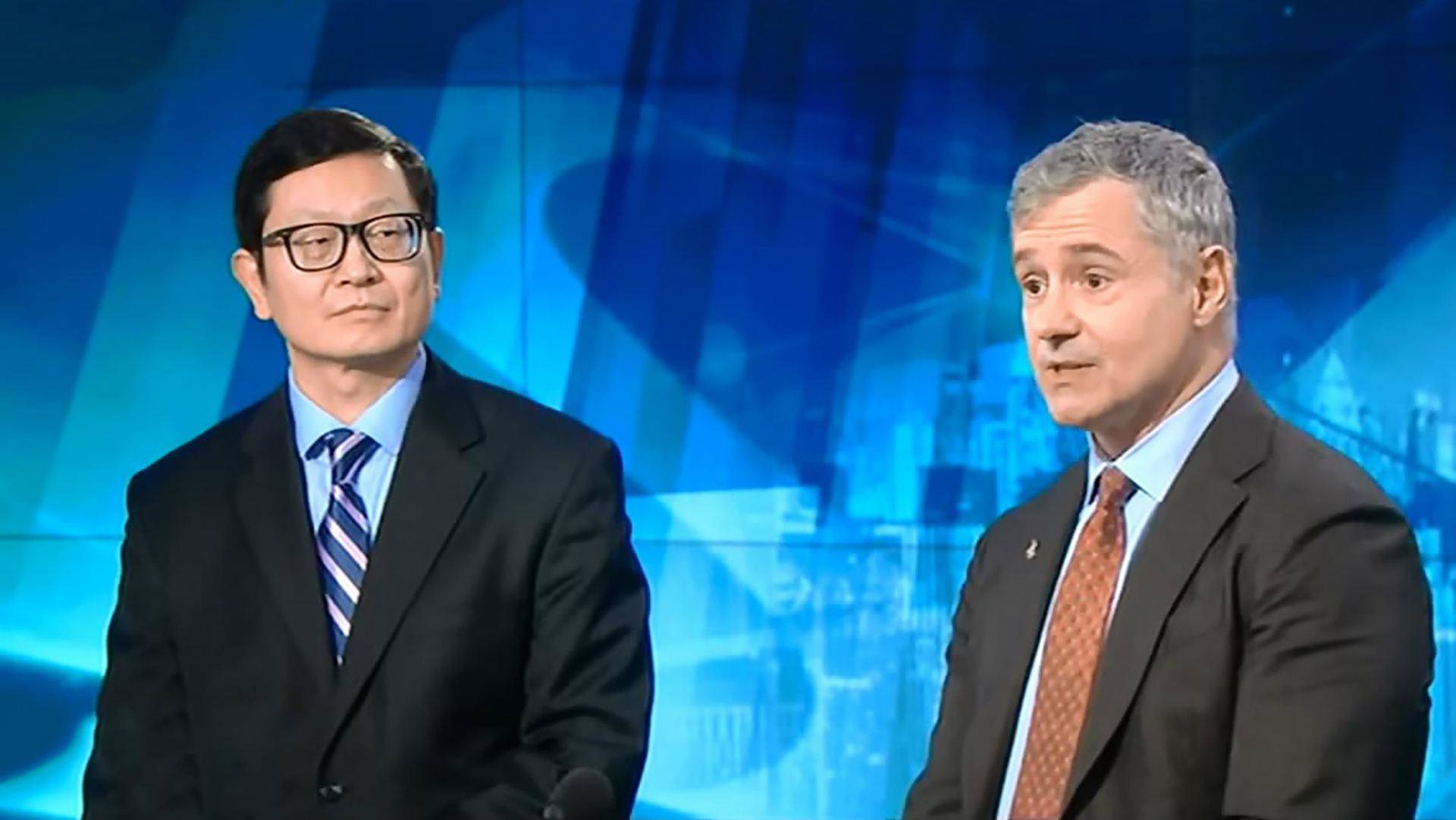
Economy
20:35, 02-Mar-2019
Debunking China Myths: Can China and U.S. find a math equation for trade?
Wang Yue
01:42

The progress made during the latest negotiation between China and the U.S. has postponed the tariff increase, which was supposed to be implemented on Friday.
Beijing and Washington have kept in close communication since the two leaders agreed to a 90-day trade truce on December 1 last year. The most recent outcome was that the U.S. has now abandoned its threats to raise tariffs to 25 percent on 200 billion U.S. dollars of Chinese goods.
Based on mutual interests, experts believe that an agreement beneficial to both countries will work out in the near future. But the differences will take longer to overcome.
04:31

Do trade uncertainties influence business?
As a result of trade uncertainties, the global economic outlook is murky. Many industries are suffering, while others continue to grow.
Trade uncertainties, combined with moderating economic growth, have impacted some industries, according to Wang Jianhui, general manager of the R&D department at Capital Securities. He projected that some sectors, manufacturing in particular, would experience several quarters of slowdown, since the demand has not warmed up yet.
“For major manufacturing products like electronic components, vehicles or automobile components, some industries will get better conditions but some will face tougher challenges,” Wang explained.
The latest Business Climate Survey from the American Chamber of Commerce in China (AmCham) showed that 65 percent of its member companies were influenced by trade tensions when making longer-term business strategies. In the meantime, nearly a quarter of companies surveyed are delaying additional investments in China.
“Companies are going to take a kind of a wait-and-see attitude for some time. They will be participating and growing in China as much as they can, but they'll be hesitant about some big investments,” explained by Tim Stratford, chairman of AmCham.
To making the Chinese business environment more attractive, Wang said, “We should have a simplified and unified legal system, especially when it comes to implementation and application of the certain laws. So we should deal with the problems subject to a common single standard,” he commented.
However, art products might be the exception. “Generally, it (trade tension) really hasn't affected our business in any meaningful way,” based on Ron Losby, CEO of Steinway Musical Instruments.
Based on Losby, Steinway's business has continued to grow in China over the last decade. “It's growing in high single and double-digit year on year over the last 10 to 12 years…Right now, what has affected our business is just this wonderful market for music education, and how every parent wants to have their children play the piano,” the CEO said.
06:58

Will China and the U.S. come to a solution?
China's Commerce Ministry said recently that the two countries have achieved substantial progress during their latest round of trade talks. And its spokesman, Gao Feng, said that “the two countries have worked closely to carry out the consensus on technical transformation, IP protection, non-tariff barriers and monetary policies.”
Not only officials, but businesses are positive about a resolution.
Stratford told CGTN that AmCham was optimistic about an agreement between the two countries, as “both sides are engaged in such a serious way.”
Losby was positive that “a mutual agreement that is beneficial for both sides will be forthcoming at some point in the near future.”
Christopher Nixon Cox, the Vice Chairman of American Asset Manager BrightSphere, highlighted “mutually beneficial” as well.
Meanwhile, as the grandson of the late U.S. president Richard Nixon, Cox told CGTN that “it's healthy to have an honest discussion.” That opinion was appreciated by Stratford. “The frequency of the discussions is a good sign,” the AmCham's Chairman stressed.
“I think it's a common interest to reach something. So you know to get some solid deal which at least to keep a peaceful environment for several years,” Wang noted.
He further elaborated that “the Trump administration will think about the second term right now. He will try to make himself looking better, and not to be like a cold war initiator. And China has more internal problems to deal with. So it doesn't want to have more troubles with even neighbors or trade partners.”
But Wang acknowledged that differences between China and the U.S. will take time to overcome. From his perspective, the two countries would reach some “principles that both sides agree commonly” in the near future, but spend longer time to “solve all different issues.”
“They will solve certain major issues, but we leave some of these not so urgent issues in the future and the talks will keep going,” Wang said.
“Whenever you put issues out, we can have differences,” echoed by Cox, adding that “from all the comments we've seen recently, we're working through those issues. And if we can resolve those in a way that will benefit both China and the United States, that can only be a positive for relationship… We can work through our differences, and both countries would be stronger from those discussions.”
(Xia Cheng and Hu Binyi also contributed to the story)

SITEMAP
Copyright © 2018 CGTN. Beijing ICP prepared NO.16065310-3
Copyright © 2018 CGTN. Beijing ICP prepared NO.16065310-3